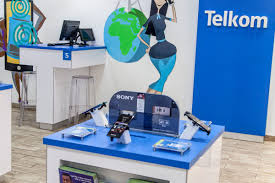Telkom SA of South Africa announced on Friday that it has struck an out-of-court deal with the country’s telecoms regulator, ICASA, putting an end to the legal fighting over the licensing of the high-demand spectrum.
The auction for the radio frequency spectrum that South Africa concluded on March 17 is at issue. Authorities claimed the auction brought in 14.4 billion rands ($967.49 million) from the six bidders. However, given Telkom’s legal struggle, the results of the auction were questionable.
The litigation placed uncertainty on the auction process, which had been delayed for years owing to similar lawsuits, as the risk of the court ordering the Independent Communications Authority of South Africa (ICASA) to resume the auction was considerable.
The agreement is a win for a sector that has been waiting 17 years for a new spectrum to be released on a permanent basis, allowing mobile operators to enhance 4G capacities and put out new 5G technologies.
In a second statement, ICASA said it will begin licensing the unsold 800 MHz frequency band from last month’s auction, as well as any other spectrum that is currently available for licensing, as part of the settlement.
ICASA would evaluate the imbalances in this band, as well as the impact of the auction’s decision on mobile market competition, in the licensing procedure for this spectrum, it added. By the end of March 2023, ICASA hopes to have completed the licensing process.
Furthermore, ICASA will launch an investigation into the existence of a secondary market for spectrum, which will involve a determination of whether regulatory intervention is required, according to ICASA.
Telkom, the country’s third-largest mobile operator, said that the way ICASA designed to auction the spectrum, which was completed in March, favored big mobile carriers and was anti-competitive.
Telkom Group CEO Serame Taukobong said the settlement resolves the key issues that prompted Telkom to file a lawsuit, adding that the company has agreed to drop the lawsuit and that each side will bear its own legal fees.
The deal also provides challenger operators like Telkom more opportunities to purchase sub-1 GHz spectrum, which is critical for offering better internet services in underserved and rural areas, as well as improved indoor coverage spectrum, in order to compete with established players.




















